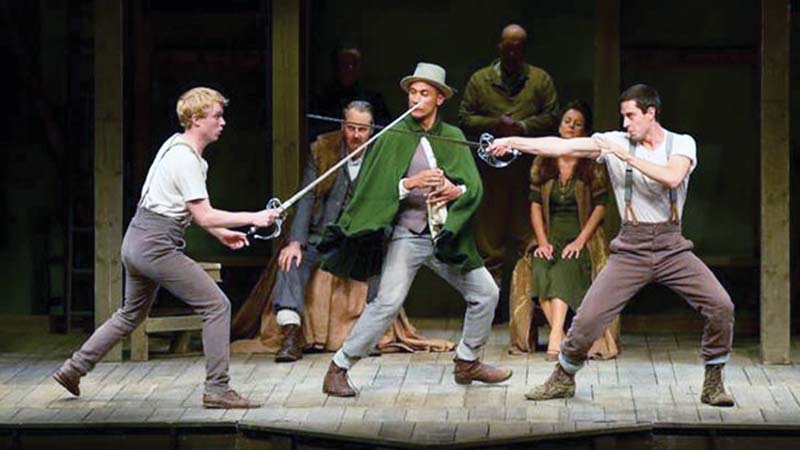
Entertainment Desk :Shakespeare’s Globe will stage a show of William Shakespeare’s famous tragedy Hamlet on July 15 at the National Theatre Hall of Bangladesh Shilpakala Academy in the city. The troupe will visit Bangladesh as part of a world tour marking the playwright’s 450th birth anniversary. In Hamlet, prince Hamlet, learning of his father’s death, comes home to find his uncle married to his mother and installed on the Danish throne. At night, the ghost of the old king demands that Hamlet must avenge his ‘foul and most unnatural murder.’ Encompassing political intrigue and sexual obsession, philosophical reflection and violent action, Hamlet is Shakespeare’s ‘poem unlimited,’ a colossus in the story of the English language and the fullest expression of his genius.The production had already toured the UK, Europe and the United States in 2011 and 2012, and got critical appreciation for its ‘efficiency, clarity, accessibility, and above all energy.’ The show in Dhaka will be organised by Dhaka Theatre, in association with the cultural affairs ministry, Bangladesh Shilpakala Academy, International Theatre Institute’s Bangladesh Centre and British Council.The play is directed jointly by Dominic Dromgoole and Bill Buckhurst, while 12 professional artistes of Shakespeare’s Globe will act in the play. The character of Hamlet will be played by either Ladi Emeruwa or Naeem Hayat. Famous music director Bill Barclay has done the musical scores for the play.The Tragedy of Hamlet, Prince of Denmark, often shortened to Hamlet is Shakespeare’s longest play and one of the most influential among English plays. It tops the performance list of Royal Shakespeare Company and ranks second in the list of adapted movie productions after Cinderella. It was written at an uncertain date between 1599 and 1602. The tragedy derives from Saxo Grammaticus’s Amleth compiled in his 13th century chronicles Gesta Danorum. Shakespeare crafted Hamlet’s character chiefly in the image of the then leading theater actor Richard Burbage (1567-1619).The weight of one’s mortality and the complexities of life and death are that Shakespeare could not help but bring to the center of Hamlet. The dubious questions that like – What happens when you die? If you’re murdered, then will you go to heaven? Can anyone truly get a free pass to heaven? still puzzle the modern inquisitive minds. In the wake of his father’s death, Hamlet can’t stop pondering and considering the meaning of life – and its eventual ending. Kiekegaard’s views were still a far cry for any Elizabethan or Jacobean but Shakespeare certainly could not wait that long to inspect the remotest corners of human mind.

